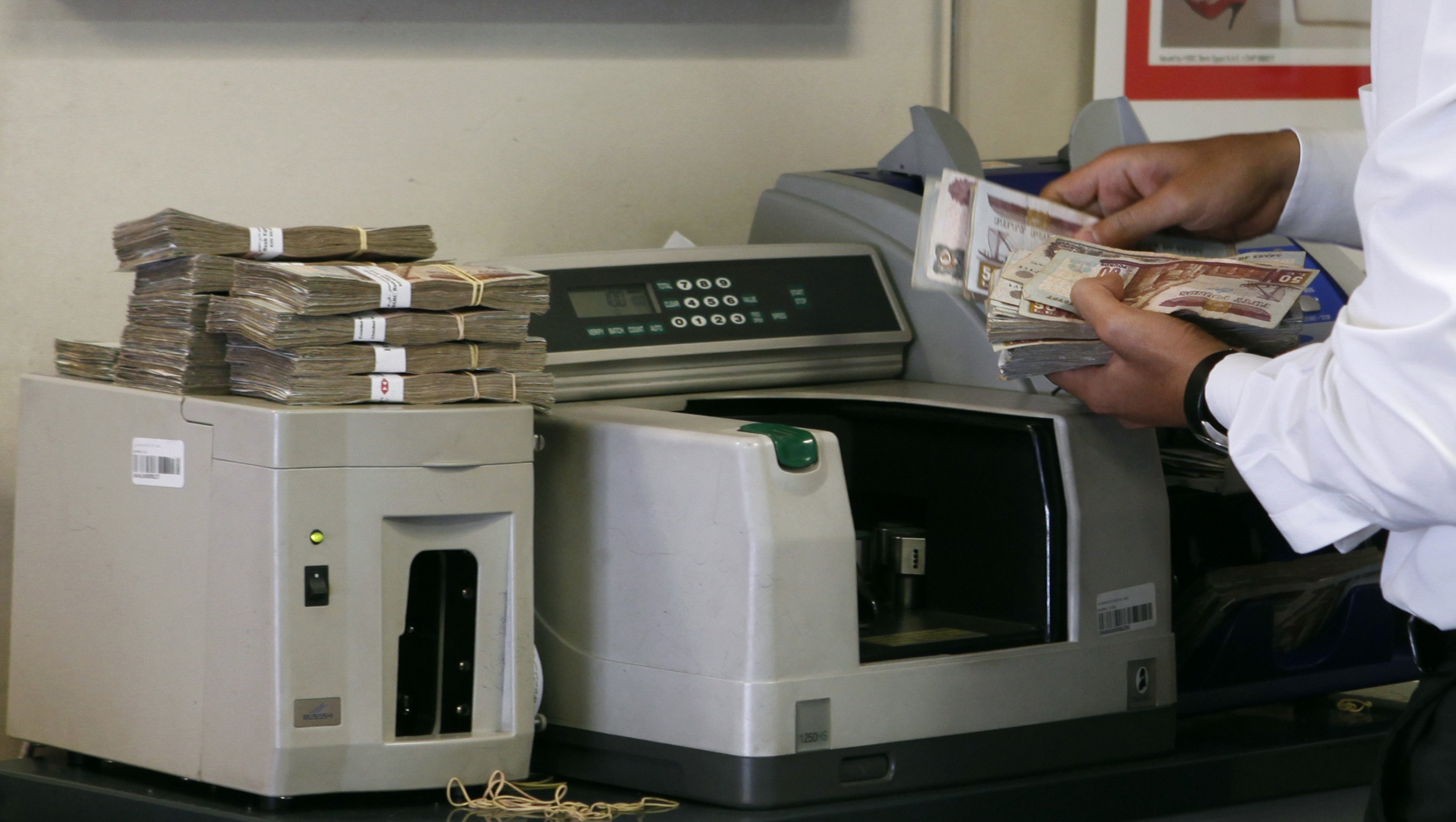Decline in Egypt's foreign reserves negatively affects credit rating - Moody's

By Maye Kabil
CAIRO, Oct 12 (Aswat Masriya) - Credit ratings provider Moody's said on Monday that the drop in Egypt's foreign reserves for three months in a row is "credit negative" for the country.
Egypt's net foreign reserves fell to $16.335 billion at the end of September, dropping by nearly $2 billion in one month, the central bank said last week. The bank said the decline in foreign resrves was because Egypt repaid $1.25 billion for 10-year bonds that recently matured.
"The drop reflects continued dependence of Egypt’s balance of payments on external donor support, which is credit negative for the country’s external liquidity position," Moody's said in a report.
Gulf states Saudi Arabia, Kuwait, the United Arab Emirates and Oman pledged $12.5 billion in assistance and investments to Egypt in a major economic conference Egypt hosted in March 2015.
Moody's, however, said "we forecast that the growth in deposits will slow in fiscal 2016."
The credit ratings provider believes that relying on external support has secured a buffer for Egypt "against external vulnerabilities and balance of payments risks", but added that "structural imbalances remain."
"If reserves continue falling, it would place pressure on Egypt’s external position despite the country’s low current levels of external debt," Moody's said.
At the current level of reserves, Egypt can cover imports for 2.1 months, which is below the three months recommended by the International Monetary Fund. Moody's projects that in the fiscal year, 2015/2016 the import cover will be 2.7 months, still lower than the IMF's recommendation.
Years of political turmoil have hit Egypt's economy hard. Foreign exchange reserves fell from about $36 billion before the January uprising in 2011 to $18.5 billion last July.
The prolonged period of reduced reserves are pressuring Egypt to devalue its currency.
On January 18, Egypt's central bank allowed the Egyptian pound to weaken in front of the U.S. dollar for the first time in six months. The bank depreciated the pound further in July, letting it slide to 7.73 to the dollar.
Several investment banks expect the Egyptian pound to be changing hands at 8 pounds to the dollar by yearend.
On the other hand, Moody's report shows that Egypt was able to come out with a balance of payments surplus of $3.7 billion in the previous fiscal year, which ended in June 2015.
There was also an increase in foreign direct investments in the fiscal year 2014/2015 of $2.3 billion, compared to the year before, according to Moody's.
"Increases in supplier credit and FDI inflows point to improving investor sentiment and investment inflows for greenfield, oil sector and real estate projects," the report said.









facebook comments